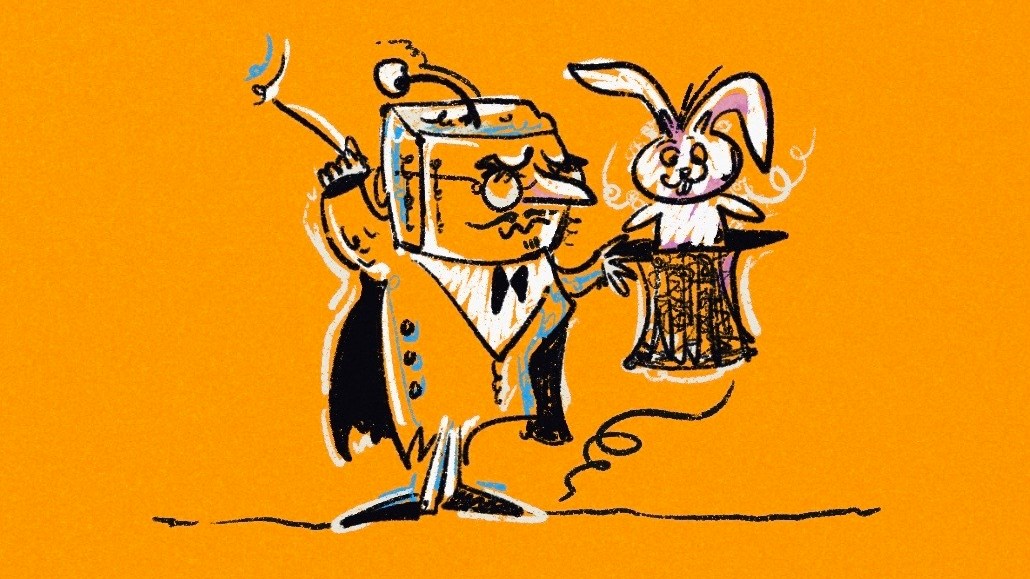Secure your place at the Digiday Media Buying Summit in Nashville, March 2-4
The Rundown: OpenAI’s upheaval raises new questions about the industry’s generative AI players

OpenAI’s current mercurial state is prompting plenty of questions about what the fallout might mean for the future of generative AI.
It’s been a chaotic few days in the AI world. On Friday, OpenAI’s board unexpectedly ousted cofounder and CEO Sam Altman and removed both Altman and Greg Brockman — OpenAI’s cofounder and president — from the startup’s board. On Monday, OpenAI named former Twitch CEO Emmett Shear as OpenAI’s interim CEO after initially naming CTO Mira Murati as the interim CEO. The same day, Microsoft hired Altman and Brockman to lead a new “advanced AI research team” while hundreds of OpenAI employees threatened to quit unless Altman was reinstated.
There’s been plenty of speculation about what led to Altman’s ouster. Meanwhile, some of OpenAI’s partners have been left in the dark about internal updates — something investors and even Microsoft have also reportedly experienced. However, some tech experts say it’s maybe a good thing the chaos is happening early in AI’s adoption cycle before companies are deeply dependent on OpenAI’s technology. Others say the uncertainty within the AI leader might even give competitors a chance to catch up.
In a tweet addressing the leadership changes, Microsoft CEO Satya Nadella said the giant — which has invested billions of dollars into OpenAI — remains “committed to our partnership with OpenAI and have confidence in our product roadmap.”
“We look forward to getting to know Emmett Shear and OAI’s new leadership team and working with them,” Nadella wrote. “And we’re extremely excited to share the news that Sam Altman and Greg Brockman, together with colleagues, will be joining Microsoft to lead a new advanced AI research team. We look forward to moving quickly to provide them with the resources needed for their success.”
OpenAI’s sudden shakeup could bolster the case for new AI regulations, according to Max von Thun, Europe director for the Open Markets Institute. He said individual companies are “too fickle and unstable to regulate themselves” and that foundation model providers should be held to standards like the one proposed in the EU AI Act.
Von Thun also noted that it’s worth questioning Microsoft’s relationship with OpenAI — especially if Altman ends up joining the giant. Would the move deepen the relationship between the two companies or give Altmanmore incentive to undermine it?
“We can’t accept that a company’s approach to safety will drastically change every time they get a new CEO,” von Thun said. “The fact that OpenAI’s board were able to fire Altman despite knowing the backlash they would face is actually a good thing; most tech companies are far too beholden to their founders, even though this has often had terrible consequences.”
The chaos could also prompt companies to consider diversifying the large language models they use and potentially fuel interest in open-source AI models.
There might also be other incentives for using different large language models (LLMs), according to Vivek Sharma, CEO and co-founder of Movable Ink. He said using several different LLMs that each have a purpose might also be more affordable — and potentially more effective — than a general purpose LLM like OpenAI’s.
“Maybe 1,000 flowers need to bloom,” Sharma said. “Maybe there needs to be multiple approaches to LLMs because you don’t know if there’s going to be just one company that will be around.”
The reaction to Altman’s ouster also shows the power of persona when it comes to emerging tech. Samantha G. Wolfe, a media and tech professor at New York University and founder of the strategy consultancy PitchFWD, said people and emotions both play important roles in tech adoption.
“Would this kind of thing happen in a different industry? Maybe,” she said. “But it wouldn’t be shaking the industry to the core. The person who was supposed to tell us about the future of AI was just fired…People tend to think if the tech is good enough then they’ll try it, but no, that’s often not enough. Emotions are in play.”
More in Media Buying

Future of TV Briefing: CTV identity matches are usually wrong
This week’s Future of TV Briefing looks at a Truthset study showing the error rate for matches between IP and deterministic IDs like email addresses can exceed 84%.

Canadian indie Salt XC expands its U.S. presence with purchase of Craft & Commerce
Less than a year after buying Nectar First, an AI-driven specialist, Salt XC has expanded its full-service media offerings with the purchase of Craft and Commerce.

Ad Tech Briefing: Publishers are turning to AI-powered mathmen, but can it trump political machinations?
New ad verification and measurement techniques will have to turnover the ‘i just don’t want to get fired’ mindset.







